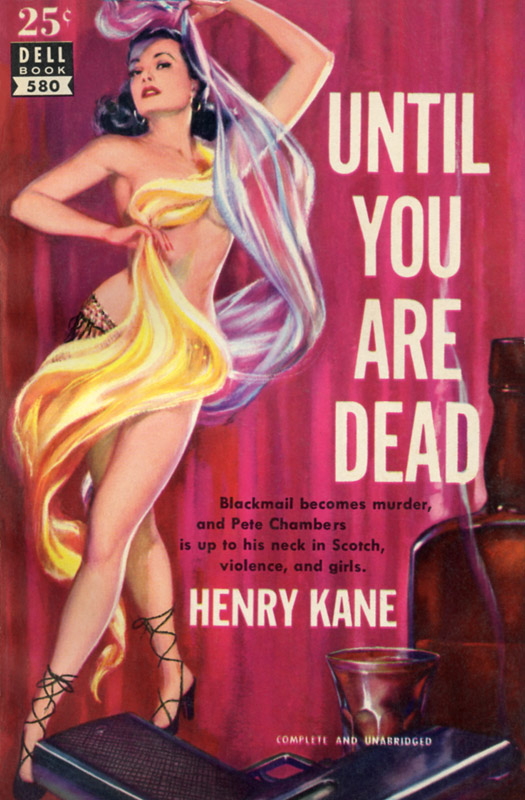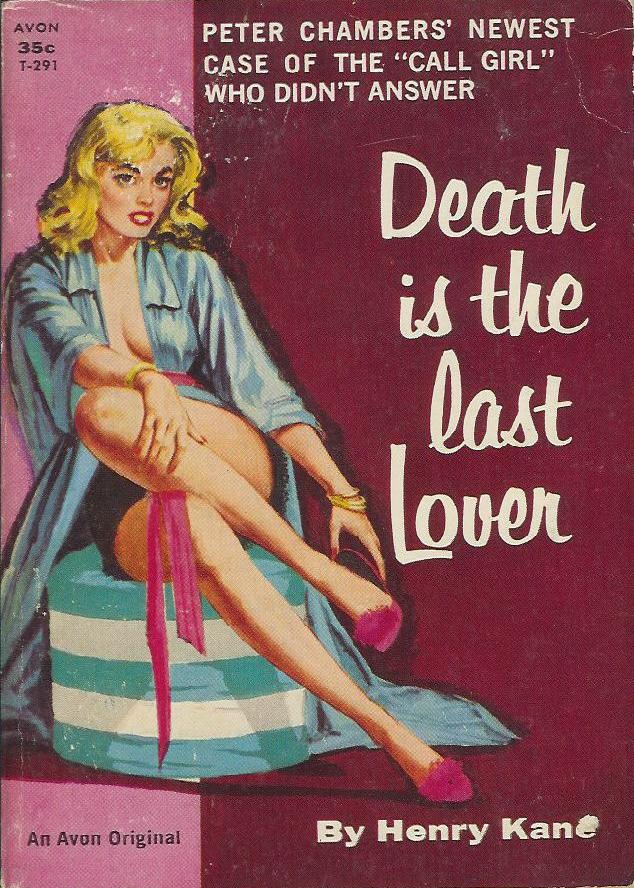Then, not long after, he was talking to a male friend who’d had an affair with a prominent actress we’ll call Lorraine. “Oh, that’s over,” the friend told him. “She’s a nice woman, enormously talented, and damned attractive. But it’s just no good in the sack.”
 “She doesn’t enjoy sex?”
“She doesn’t enjoy sex?”
“Au contraire, mon frère Henri. She loves it. Can’t get enough of it.”
“Then—”
“She only wants one thing,” the friend confided, “and she doesn’t want it to end. She wants to be—how shall I put this?—the pièce de résistance at the banquet.”
“Oh.”
“Not that she’s not a suitable object for that sort of veneration,” he said. “But one doesn’t want to spend hours on end kneeling in homage, as it were.”
“Hours, eh?”
Henry mulled this new nugget of information, and in the course of the next several days he made two phone calls. The first was to his friend Gordon.
“There’s a woman I think you’d really enjoy,” he said. “Her name’s Lorraine. She’s a few years older than you, but I don’t see why that should be a problem. Why don’t you give her a call, see if the two of you hit it off?”
The second call was to Lorraine, whom he didn’t know as well as he knew Gordon, but whom he’d met a few times and felt comfortable calling. “There’s a fellow I know named Gordon,” he told her, “and I think he’s going to call you for a date. I have a strong hunch the two of you would be good together, so why don’t you give it a shot and see how it goes?”
And that, said Henry Kane to me, perhaps ten years after those phone calls, is how Gary Morton met Lucille Ball.
I know, I know. It’s an outrageous story. And there’s no way to confirm it. Wikipedia tells us that the two met while Ball was rehearsing Wildcat prior to its Broadway opening, and that a fellow cast member introduced the two of them. And maybe that’s what happened, and maybe it’s not.
The principals themselves are long gone—I wouldn’t dream of recounting the story otherwise—and we’re free to believe it or not, as we prefer. I figure it’s true, but maybe that’s just because I want it to be true. I’ll tell you, it adds a certain something to watching reruns of I Love Lucy.
Toward the end of our acquaintance, Henry Kane wrote a novel with some sort of espionage element in it. A hardcover house contracted to publish it, and then Something Went Wrong. Someone from one of the intelligence agencies visited Kane’s publisher, and the book essentially disappeared.
Now it seems to me that there was once a time when I knew the book’s title, and I may even have read it, but on this point my memory is spotty and not to be trusted. I think the book was actually published, but can’t even be certain of that. What I do recall is that Kane was desperate to know who was responsible for its suppression, and why, and so on. And he couldn’t figure out how to learn what he wanted to know.
I suggested he ask himself what his detective, Peter Chambers, would do in such a situation. Or another character, ex-Inspector MacGregor. Figure out who they’d call, and what they’d say, and how they’d solve the puzzle, and then do just that.
I don’t think he could see what I was getting at. The characters he wrote could operate in that world, and do so with great panache, but he couldn’t even put himself into it in his imagination. He went on railing at Fate, and never did learn who’d put the kibosh on his book, or why.
 Toward the end, Henry Kane published a series of erotic suspense novels for Lancer, with titles like The Shack Job, The Glow Job, The Escort Job, and The Tail Job. I think he ghosted at least one Ellery Queen paperback, and his last novel seems to be The Little Red Phone, published in 1982.
Toward the end, Henry Kane published a series of erotic suspense novels for Lancer, with titles like The Shack Job, The Glow Job, The Escort Job, and The Tail Job. I think he ghosted at least one Ellery Queen paperback, and his last novel seems to be The Little Red Phone, published in 1982.
It must have been sometime in the early ’80s that he died. I had lost track of him by then, and had changed agents myself, so he was long gone by the time I had word of his death. And I’ll be damned if I can find out when it was that he died.
Henry Morrison doesn’t remember. “All I know is it was a really long time ago,” he told me recently. He added that Kane’s widow had since died, and that their daughter had moved and his attempts to contact her had been unsuccessful.
I got in touch with a woman I’d met through Kane, an old girlfriend of his, but she, too, had long-since lost touch with him. She couldn’t furnish his date of death, and while she was at it she cast doubt on his official date of birth; she figured he wasn’t above taking off a few years, and that he was most likely born not in 1918 but in 1908. And she put me in touch with another old girlfriend of Henry’s, with whom I had a perfectly lovely conversation, but she didn’t know when he died, either.
You’d think in this age of Google that anybody’s date of death would be instantly available, but it’ll take someone handier than I with a computer to find it.
But it’s pretty clear that he’s gone, and I guess somebody said Kaddish for him. I haven’t heard any footsteps.
A Selected Henry Kane Reading List
Peter Chambers Novels
A Halo for Nobody (1947)
Armchair in Hell (1948)
Hang by Your Neck (1949)
A Corpse for Christmas (1951)
Until You Are Dead (1951)
My Business Is Murder (1954)
Too French and Too Deadly (1955)
Who Killed Sweet Sue? (1956)
Fistful of Death (1958)
Death Is the Last Lover (1959)
Death of a Flack (1961)
Dead in Bed (1961)
Death of a Hooker (1961)
Kisses of Death (1962)
Death of a Dastard (1962)
Never Give a Millionaire an Even Break (1963)
Nobody Loves a Loser (1963)
Snatch an Eye (1963)
The Devil to Pay (1963)
Unholy Trio (1967)
Don’t Call Me Madame (1969)
The Shack Job (1969)
The Bomb Job (1970)
Don’t Go Away Dead (1970)
The Glow Job (1971)
The Tail Job (1971)
Come Kill With Me (1972)
The Escort Job (1972)
Kill for the Millions (1972)
“Inspector” McGregor Novels
The Midnight Man (1965)
Conceal and Disguise (1966)
Laughter in the Alehouse (1968)
Marla Trent Novels
Private Eyeful (1959)
Kisses of Death (1962)
Standalone Novels
Edge of Panic (1950)
Laughter Came Screaming (1953)
The Deadly Finger (1957)
Death for Sale (1957)
Run for Doom (1960)
The Crumpled Cup (1961)
My Darling Evangeline (1961)
Two Must Die (1963)
Dirty Gertie (1963)
Frenzy of Evil (1963)
The Virility Factor (1971)
The Moonlighter (1971)
Decision (1973)
A Kind of Rape (1974)
The Violator (1974)
The Avenger (1975)
Lust of Power (1975)
The Tripoli Documents (1976)
The Little Red Phone (1982)
This article first appeared in Mystery Scene Summer Issue #115.


